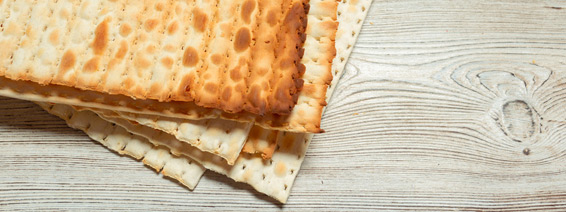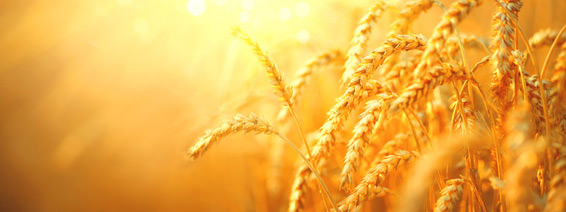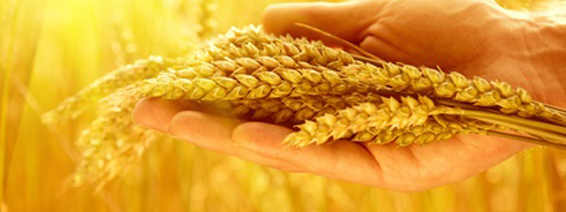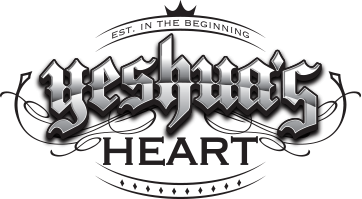The feasts and holy days as outlined in scripture
Shabbat (Sabbath).
Yahweh numbers the days of the week. The only day with a name is Shabbat which means rest. It is from sundown Friday to sundown Saturday and is a holy day of rest where we do no regular work (making money), or hard labor; nor do we buy or sell as that would make other people have to work or serve us. Genesis 2:3 Exodus 23:10 Leviticus 23:3 Exodus 31:16, Leviticus 24:8
Every 7 years is a Shemitah year, which is a Sabbath year of rest for the land. Judah was exiled to Babylon for 70 years, one year for each Shemitah year they did not rest the land.
Every 50 years is a Jubilee year. This is a Sabbath year where all land is returned to original owners, slaves freed and debts cleared. It is a financial re-set of sorts.

Passover & Feast of Unleavened Bread
Leviticus 23:4-8. Passover is well known as the day that Yehovah took Israel out of exile from Egypt. We are to commemorate this day. The following day begins the 7 day festival of Unleavened Bread. This is a commemoration of the exodus when the Israelites left Egypt, leaving in a hurry without enough time to wait for their bread to rise. The first day of this feast is a high Sabbath (another non working day in addition to the weekly Sabbath )and we are instructed to eat bread without leaven in it as a reminder. Leaven is also symbolic of sin, so we are to rid our homes of all leaven “sin” as well. Leviticus 23:5,6

First Fruits
Leviticus: 23:9-14 During the Feast of Unleavened Bread there is always a weekly Sabbath (Saturday). The day after this weekly Sabbath we are told to bring the “first fruits” of the harvest (the first ripe barley in the field) and raise it as a wave offering; this is the Feast (or Day) of First Fruits. Today, there is no Temple nor earthly priesthood, but we can observe the spirit of the First Fruits offering. It was given from the first harvest of the year — not knowing if any more crop would spring from the ground. It was, and still represents, a “faith” offering; a declaration that you trust the Almighty to provide for you throughout the coming year.
When you celebrate the Feast of Unleavened Bread and the First Fruits, remember that, as 1 Corinthians 15:20 says, “Now is Messiah risen from the dead, and become the first fruits of them that slept.” He was the first born from among the dead (Revelation 1:5) and with the keys of death and the grave (Revelation 1:18), he raised the saints who were his First Fruit offering to his Heavenly Father. The Day of First Fruits is the period of the spring barley harvest and Shavuot is the period of the wheat harvest.
God’s calendar is not only prophetic rehearsals, it is also agricultural. He blesses his people with knowledge on when to sow and when to reap for successful harvests.

Shavuot
(Pentecost or Feast of Weeks)
Leviticus 23:15-22. Shavuot is a Hebrew word that means “weeks” and is called as such because we are to count 7 weeks up to the day of Shavuot from the Day of First Fruits (the morrow after Yeshua rose from the dead). It is called Pentecost in Greek as Pentecost is the Greek word for 50.
It is common among Torah-observant believers to mark each day during this period by “counting the omer” ( 7 weeks is 49 days) up to the 50th day of the count, which is the actual day of Shavuot. The “omer” is a unit of measure used in the Bible and in this context refers to the measure of barley used in the “wave” offering on the Day of First Fruits.
Interestingly, while most Hebrew festivals fall on different days of the week from year to year, Shavuot is always celebrated on a Sunday (referred to simply as “the first day of the week” in Hebrew). This happens because the 50-day counting of the omer that commences on the Day of First Fruits also always starts on a Sunday, the “morrow after the Sabbath”, as commanded in Leviticus 23:15. We count the omer for 7 Sabbaths after First Fruits.

Yom Teruah
(Day of Trumpets )
Leviticus 23:23-25 This is a high Sabbath day and we are told to commemorate it by blowing of trumpets or making loud noises and shouting. This is a reminder of several times Yehovah used trumpets in battles and shouted down the commandments on Mt. Sinai. More importantly, it heralds the second coming of Messiah in prophesy.
This feast is the only one that falls on the first day of a Biblical month, which means we have to wait for the first sliver of the moon to be sighted – so we don’t know exactly when the feast will start. This is what Yeshua was referring to when he said that “no man will know the day or the hour” of his return; however we are to be wary of the season of his coming, being diligent to observe world events that tell us the time is near so we will not be surprised.
Because we don’t know for sure when the first sliver of the new moon will be sighted, we have to be completely ready for Yom Teruah before it comes; it’s a rehearsal for the ultimate Yom Teruah when Yeshua returns.
Yom Kippur
(Day of Atonement)
Leviticus 23:26-32 Another high Sabbath day of rest, In the Torah (first 5 books of old testament) this day is called Yom HaKippurim (in the plural), which literally means Day of “coverings”, as this is the day when the High Priest would pour the blood of a goat over the Kaporet (the Hebrew for the Mercy Seat, same root word) to atone (cover) for the many sins and transgressions (plural again) of the nation of Israel.
On Yom Kippur, we are told to do no work whatsoever and to “afflict our souls” or “deny ourselves.” This is taken to mean fasting, or not eating. Most people who observe Yom Kippur do not eat or drink from sunset to sunset. The point of fasting is to help us focus on things that are more important than our body’s desire for food. It is the only moedim where we are commanded to fast.
Our relationship with our Creator is the most important in our lives. This is a rehearsal for in the last days, Yom Kippur is the final day of Yehovah’s judgment on the world, which is why it is a day of repentance now as we look toward its final fulfillment.
Yom Kippur marks the end of YeHoVaH’s wrath upon the earth. The righteous will have been gathered to Messiah and are saved from this wrath. Once the Almighty’s wrath is ended, it will be time for the wedding feast of Messiah and his people (the Feast of Sukkot).
Fasting on Yom Kippur is the reminder that all of our needs come after our need for our Father and his love and grace.
Sukkot
(Feast of Tabernacles or Booths)
 Leviticus 23:33-44 Sukkot is one of the three pilgrimage feasts, or feasts for which we are commanded to “go up” to Jerusalem. (the other two are Feast of Unleavened bread and Shavuot).
Leviticus 23:33-44 Sukkot is one of the three pilgrimage feasts, or feasts for which we are commanded to “go up” to Jerusalem. (the other two are Feast of Unleavened bread and Shavuot).
Today there is no Temple to go to in Jerusalem, but we still celebrate this feast because it is a commandment and a rehearsal of events that have already occurred and some yet to come. The first day of Sukkot is a High Sabbath. Also the day immediately following the seven-day feast, which is the 8th day is called Shemini Atzeret, known as the Last Great Day, is also a High Sabbath (special Sabbaths other than the weekly Saturday Sabbath), a day of no work.
During the feast of Sukkot we remember when the Almighty led the Israelites out of Egypt, and they lived in shelters in the wilderness for 40 years. During this time, the Almighty also dwelt among the people in a sukkah (sue-KAH), the singular form of the Hebrew word sukkot, (i.e. in the “tabernacle”).
For Sukkot, each family is commanded to build a temporary shelter called a “sukkah” and dwell in it for the length of the 8-day feast. Some people set up a tent to dwell in during this time, while others build more elaborate, yet temporary structures with PVC pipe, bamboo, or wooden boards. It can be as simple as a square or rectangle top and four legs. The walls of the sukkah are usually some kind of fabric.
Most people eat their meals in the sukkah and some even camp out in it each night. Others gather for the festival on a week-long camping trip. The sukkah is intended to remind us of our need for the Almighty’s provision and of the fact that our life on Earth is temporary, like the sukkah itself.
Tabernacles is the time of Yeshua’s birth (Jesus), he was born during the first day of the feast and circumcised on the 8th day (Shemini Atzeret). Pregnant women were not expected to stay in a Sukkah, however there was no room in the inns because of the festival so Yeshua was born and laid in a sukkah. We know this because we know the time Zacharia was serving in the temple and the time of Mary’s visit to Elizabeth.
Caesar planned the census during the time of the feast as it was known all male Jews went up to Jerusalem at that time anyway.
Deuteronomy 16:1-17 also describes the moedim (appointed times of God, or feasts). There are several mentions in Exodus, Leviticus, Deuteronomy on specifics of the feasts and Shabbat.
Yeshua (Jesus) Followed all the Feasts of the Lord
Here are a few verses that show Yeshua (Jesus), the disciples and Paul all following Torah, including shabbat and feasts:
Shabbat (Sabbath): Matthew 12:8
Torah (the Law or Instructions): Matthew 5:17
Passover and Feast of Unleavened Bread: Matthew 26:17-19, Mark 14:12, Luke 2:41, John 2:13&23, John 12:12,20
First Fruits: John 12:24
Shavuot (Pentecost): Acts 2:1, John 5:1
Sukkot (Tabernacles or Booths) John 7:2&10, John 7:37 (last great day of Sukkot, Shemini Atzeret). The first and last days of the feast of Sukkot are high Sabbaths.
Feast of Dedication (Hanukkah) John 8:12-59, 9:1-41 and 10:1-39, Luke 10:38-42
There are so many verses that show how Jesus (Yeshua) followed Sabbath correctly, and not the ways and traditions of man. In addition there are many examples of how Paul made it a practice to be in Jerusalem during the commanded feasts as well as Sabbaths and was even imprisoned under the accusation of not following the Torah.
Paul was ultimately acquitted because there was no proof that he did not follow Torah and in addition to that there were those who bore FALSE false witness against him with these charges. Stephen also was FALSLY accused of teaching against Torah. All this can be found in Acts.
